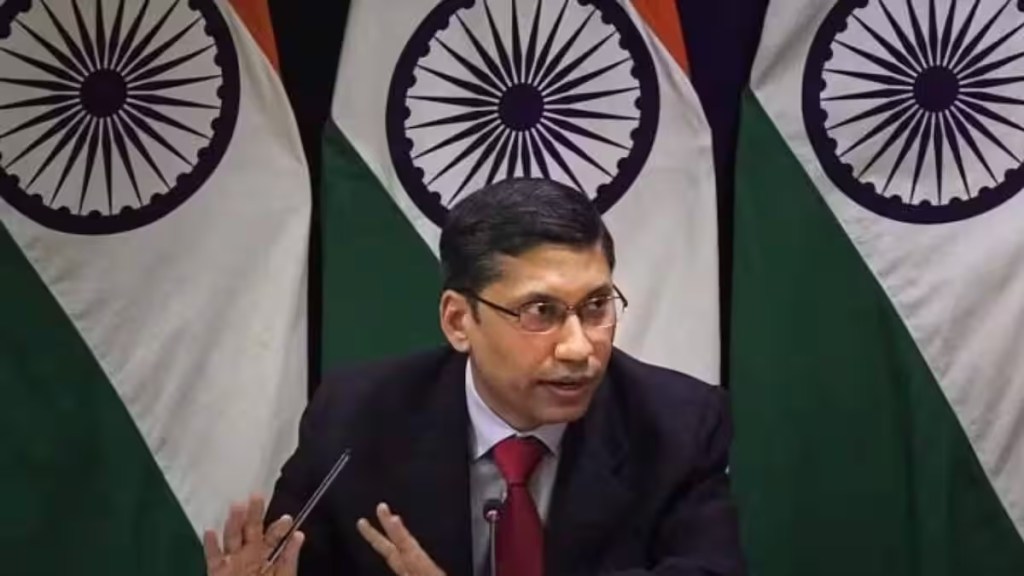India is keeping a close eye on the Venezuela-Guyana dispute.
During the weekly briefing, Arindam Bagchi, the official spokesperson for the Ministry of External Affairs (MEA) responded to a question regarding the dispute between Venezuela and Guyana and said: “India is closely observing the developments.”
He reiterated India’s advocacy for the resolution of disputes through dialogue and diplomacy.
Impact on India
The impact on India is multifaceted, particularly concerning the recent resumption of oil supplies from Venezuela. This comes after Venezuela grappled with US sanctions until earlier this year. The Biden administration eased some sanctions, specifically targeting the substantial discounts that China was obtaining from Venezuela. Despite the existing volatility in global oil prices due to conflicts in the Middle East and production cuts from OPEC members, the potential for conflict in an oil-rich nation, such as Venezuela, adds further complexity to an already precarious situation.
The Venezuela-Guyana conflict unfolds against the backdrop of ongoing global crises, including the Israel-Hamas war and the Russia-Ukraine conflict. These conflicts have far-reaching implications, impacting not only regional stability but also exerting a considerable influence on the global economy, food security, and oil security. Any alterations in the South American region could be met with concern by major global players, including China and the United States.
Crude Oil from Venezuela?
Turning attention to India’s involvement, Bagchi hinted that crude oil purchases from Venezuela might involve private entities.
US extends support to Guyana
Meanwhile, on the international stage, the US Secretary of State Antony Blinken, reaffirmed unwavering support for Guyana’s sovereignty in the face of Venezuela’s threat to annex its Essequibo region.
Blinken’s stance solidifies Washington’s position that Guyana holds full sovereignty over its expansive Essequibo region. During a recent call with Guyana’s President Irfaan Ali, Blinken not only reiterated this support but also urged both parties to seek a peaceful resolution to the escalating crisis.
Despite Venezuelans voting overwhelmingly to annex the oil-rich Essequibo, Guyana has appealed to the United Nations Security Council for a strong statement against Venezuela, highlighting the breach of the International Court of Justice’s order. The vote, held in defiance of the ICJ’s warning, adds an additional layer of complexity to an already volatile situation.
The story so far …
Venezuela’s President Nicolas Maduro further fuels tensions by proposing a bill to declare Essequibo a province. This move prompts Guyana to respond assertively, placing its armed forces on high alert. Seeking regional support, Guyana has turned to allies like Brazil, which has responded by sending troops to its northern border with Venezuela. “Amidst the heightened tensions, both Guyana and Venezuela have expressed a willingness to maintain open communication channels, perhaps indicating a tentative desire to de-escalate the situation,” explained a senior diplomat who wished to remain anonymous.
Historical Background
The longstanding nature of the Venezuela-Guyana dispute involves conflicting historical claims. Venezuela asserts that the Essequibo River, to the region’s east, forms a natural border and has historically been recognized as such. In contrast, Guyana, where Essequibo constitutes more than two-thirds of its territory and hosts a significant portion of its population, has administered the area since borders were determined by an arbitration panel in 1899.
Geopolitically, the disputed region is strategically located in the heart of the Guiana Shield, a northeastern South American geographical region. Known for its pristine tropical forests, the area is rich in natural and mineral resources, boasting substantial reserves of gold, copper, diamond, iron, and aluminum. Furthermore, it holds the world’s largest reserves of crude oil per capita.
This strategic significance is underscored by Guyana’s recent announcement of a “significant” new oil discovery, contributing to estimated reserves of at least 10 billion barrels. This revelation positions Guyana to surpass Venezuela in oil production, with projections indicating that, by 2025, the country could become the world’s largest per-capita crude producer.
Venezuela’s heightened interest in Essequibo dates back to 2015, following ExxonMobil’s announcement of a significant oil discovery off the Essequibo coast. This discovery not only intensified the longstanding territorial dispute but also added a new dimension to the geopolitical dynamics of the region.
Therefore, the Venezuela-Guyana conflict, with its intricate geopolitical, economic, and historical facets, remains a critical concern for India and the international community. The delicate balance of power and resources in the South American region underscores the need for diplomatic solutions and the avoidance of further escalation.
